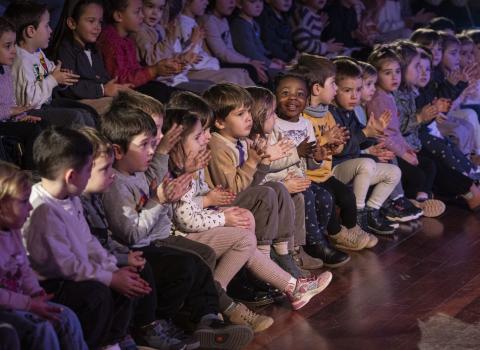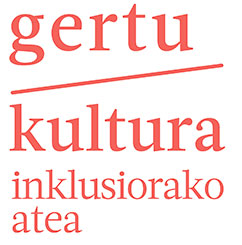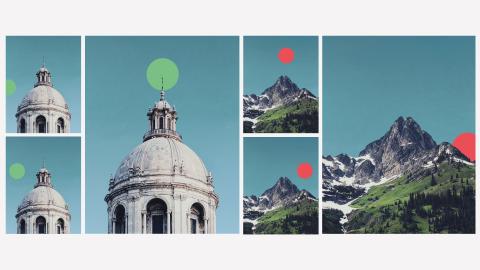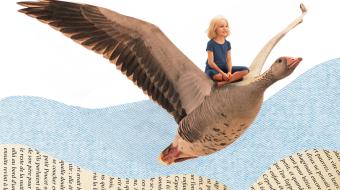Social commitment
ARTIS+. ART FOR SOCIAL INCLUSION
WHAT IS ARTIS+?
ARTIS+ is a cooperation project between the south of France, the Basque Country and Catalonia, promoted by the Department of Culture of the Generalitat de Catalunya, within the framework of the European programme of territorial cooperation Interreg POCTEFA 2021-2027.
GOALS
- The main objective of ARTIS+ is to provide a response to the challenges of inclusion and accessibility of cultural facilities in the cross-border territory through the creation of specific programmes aimed at groups at greater risk of exclusion for reasons related to disability (visual, hearing, cognitive and motor) as well as for social reasons.
- ARTIS+ aims to position itself as an instrument of social cohesion that will increase the participation of the most vulnerable groups in cultural activities.
WHO IS PART OF ARTIS+?
These are the partners within the project:
- Department of Culture of the Generalitat de Catalunya
- Department of Culture and Linguistic Policy of the Basque Government
- Directorate of Cultural Heritage of the Occitanie Pyrénées Méditerranée Region
- Basque National Orchestra
- OPPB-El Camino (Orchestra of Pau)
- Consortium of the Auditori and the Orchestra (OBC)
- National Orchestra of the Capitole de Toulouse
ARTIS+. THE POCTEFA 2021-2027 PROGRAMME
ARTIS+ falls within the following goals and axis of the POCTEFA 2021-2027 programme:
- To strengthen the roles of culture and sustainable tourism in economic development, social inclusion and social innovation.
- To promote the cross-border territory as a sustainable tourist destination, develop common culture and heritage, and also foster the activity and capacity of its agents.
- A more social and inclusive Europe.
ACTIONS OF THE PROJECT
1.Sharing and development of strategic frameworks and regulations governing the cultural rights of citizenship
The action aims at exchanging good practices on the guarantee of citizens' cultural rights. It involves all partners and consists of three phases:
- Analysis of the territorial strategies developed.
- Cross-border exchange on the challenges of social inclusion in cultural facilities and the practices identified to address them, addressed in workshops, where stakeholders are also invited.
- Design and development of guidelines and adaptations of regulations to improve the participation of citizens in cultural activities.
2.Analysis and training in cultural accessibility
This action focuses, on the one hand, on the exchange of methodologies for analysing the degree of accessibility of cultural facilities and the corresponding development of accessibility plans. On the other hand, training and awareness-raising actions are carried out for professionals in the museum and visual arts sectors who work with groups at risk of social exclusion.
3.Pilot actions for the creation of comprehensive programmes for the implementation of cultural rights in stage and music venues
With this action, the participating cultural facilities test the theoretical part - channelled in regulations, strategic frameworks, implementation guides - developed in other actions. The pilot tests are made up of three main activities depending on the target group:
- Musical activities aimed at school audiences, with special emphasis on children from complex socio-economic backgrounds. L'Auditori, with the Cantania project, the OPPB-El Camino and Euskadiko Orkestra with the Logelan Logale cantata and the Musika Gela cycle.
- Musical activities aimed at groups of people with physical or intellectual disabilities and elderly people with a significant degree of dependence or cognitive impairment. L'Auditori, with the projects La Banda ens Apropa and Cantània + Accesible, and Euskadiko Orkestra, with inclusive workshops and concerts and the project Matinées + de cerca.
- Musical activities aimed at citizens at risk of exclusion for territorial reasons, due to ruralisation. The Orchestre Nationale du Capitole de Toulouse, L'Auditori, with the project Canta con la OBC, and Euskadiko Orkestra, with the projects Abestu Euskadiko Orkestrarekin and Euskadiko Orkestra Herrietan.
It is also planned to organise a final day of capitalisation of the project, with the aim of transferring the practices carried out during the project and the results obtained to the cultural community.
FUNDING OF THE ARTIS+ PROJECT
- The ARTIS+ project has a total budget of € 1,988,980 €.
- The Interreg VI-A Spain-France-Andorra Programme (POCTEFA 2021-207) of the European Union, with ERDF funds, co-finances 65 % of the total budget: 1.292.837 €. The aim of POCTEFA is to strengthen the economic and social integration of the Spain-France-Andorra border area.
IMPLEMENTATION PERIOD
- From January 1, 2024 to December 31, 2026
GERTU KULTURA. A GATEWAY TO INCLUSION
Gertu Kultura Gipuzkoa is a network of cultural programmers who have come together to make it easier for vulnerable persons to access culture. This not-for-profit initiative seeks to improve people's quality of life through culture. To that end, collaboration with cultural programmers and social organisations is used to generate unique cultural experiences and spaces at very low prices, with priority access and personalised treatment based on listening and responding to the needs of different groups.
Gertu Kultura has grown out of the Apropa Cultura network, which was set up by the Auditori de Barcelona. With a track record dating back 20 years in Catalonia, it has become a benchmark for inclusive networks, now comprising over 190 cultural programmers, more than 1800 social organisations and at least 54 municipalities.
Gertu Kultura is starting up in Gipuzkoa with the intention of spreading to the rest of the Basque Country. It has recruited 15 cultural programmers and 20 social organisations. The Basque National Orchestra was one of the first organisations to join the network as a cultural programmer.
In joining Gertu Kultura, the Basque National Orchestra remains true to the efforts to support full inclusion which it began in 2009 in collaboration with FEVAS (the Basque Association of Persons with Intellectual and Developmental Disabilities). The partnership between the two organisations has since resulted in projects centred on persons with functional diversity. In that context. workshops have been run in Bilbao, Vitoria and San Sebastián and concerts staged at the orchestra's home base at Miramon. These activities have earned them a Good Practice Award from FEAPS (the Spanish Federation of Organisations Supporting Persons with Intellectual Disabilities) and have served as the basis for initiatives such as the Sound Mosaic, which was extended to 14 Spanish orchestras in a pioneering project to turn music into an instrument for personal development and social inclusion.
Concerts & Tickets February















